The Best Mobile Phones for the Elderly
Choosing the best mobile phone for an elderly person can be a challenging task. The device should be easy to use, have a large display and buttons, and offer good battery life.
Its also beneficial if its lightweight, durable, and affordable. Lets take a closer look at these features and some phones that deliver them. Taking on the task of selecting the perfect mobile phone for an elderly individual can certainly seem somewhat daunting at first glance. With the rapid pace of technology advancements, it's crucial to find a device that strikes a balance between modern features and user-friendly functionality. The ideal phone for seniors should be easy to navigate, boasting a large, clear display that can be read without squinting, and buttons that are big enough to avoid accidental misdials. It should also offer a robust battery life, ensuring that the device stays powered up without constant recharging, which can be inconvenient and frustrating. Moreover, considering the practicality, it's advantageous if the phone is lightweight and compact, allowing it to be carried around effortlessly. This not only makes it more comfortable for an elderly person to handle but also reduces the risk of it being dropped due to its weight.

Durability is another key factor, as the phone must be able to withstand some wear and tear. Accidental drops or spills shouldn't result in the phone becoming immediately unusable.
Additionally, cost-effectiveness is an important consideration. A phone that meets all these specifications, but also fits within a budget, can indeed be viewed as the ideal choice. We understand that affordability does not mean compromising on the quality or functionality. Now, let's delve a little deeper into these features and explore some of the phone models currently on the market that successfully deliver on these aspects. We’ll look at a variety of phones with varying features and price points, ensuring that you can find a model that fits your specific needs and budget. We aim to simplify this process and make the task of choosing a mobile phone for an elderly person less overwhelming and more straightforward.
How to Make Mobile Phones Easier to Use
To make mobile phones easier to use for seniors, manufacturers often simplify their interfaces, increase icon size, and provide physical buttons. Voice-assistant features can also be beneficial.
To enhance the user experience for seniors, manufacturers of mobile phones take an extra step and often revamp their interfaces to ensure they are simplified and user-friendly. They understand the need for clarity and ease of navigation for older users, thus, they significantly increase the icon size to guarantee visibility, even for individuals with poor eyesight. Additionally, they incorporate physical buttons, which not only adds a tactile element but also ease the process of operating the device, making it feel more familiar and intuitive, much like the traditional landline phones seniors are used to. Moreover, to further aid seniors in experiencing seamless communication, mobile manufacturers also integrate voice-assistant features into their devices.
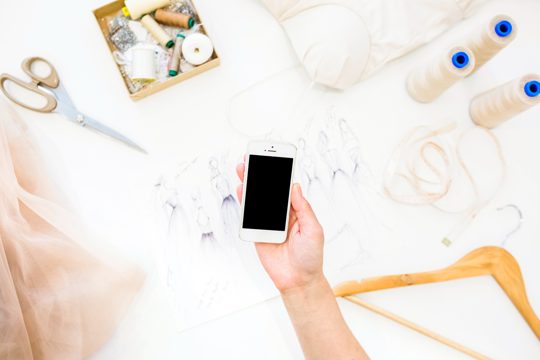
These features play a pivotal role as they enable users to execute tasks through vocal commands, eliminating the need to navigate through the interface manually. This is particularly beneficial for those with limited dexterity or vision impairments.
To sum it up, these ingenious tweaks and additions to the mobile phone design and functionality are geared towards creating a more inclusive technology landscape. They are a testament to the manufacturers' commitment to ensuring that their devices are not just cutting-edge, but also accessible and easy to use for individuals across all age demographics. It reiterates that in this digital age, nobody should be left behind - technology, after all, is meant to simplify and better the lives of all its users.
Easy-to-Use Phones with Big Buttons
Big-button mobile phones are ideal for seniors, as they make dialing and texting easier. Examples of these are the Doro 1370 and the TTfone Mercury 2 TT200.
Both have large, easy-to-press buttons and simple interfaces. Big-button mobile phones are not just a practical choice, but an absolute game-changer for seniors, transforming their communication experience by bringing convenience and ease right at their fingertips. Designed meticulously with a focus on user-friendliness, these phones have been a hit among the senior demographic, making dialing and texting a breeze, as opposed to the ordeal it can sometimes be on regular smartphones. A perfect example of this innovative design is the Doro 1370. This model is not just a phone, it's a tool built to empower its users, with large, easy-to-press buttons that are perfect for those with less nimble fingers. Not only does its simplicity make it accessible, but it also features an uncomplicated interface, removing unnecessary complexities and making it a joy to use.
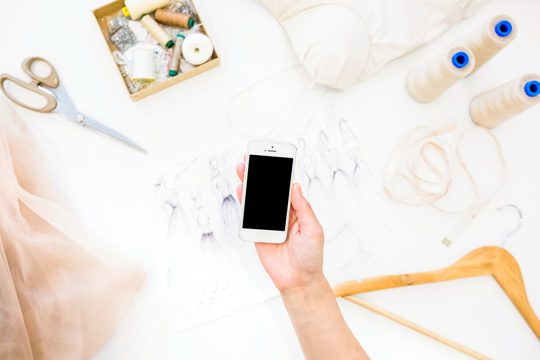
Similarly, the TTfone Mercury 2 TT200 is another masterpiece in the realm of big-button mobile phones. It matches the Doro 1370 in functionality and ease of use, with large buttons that are a pleasure to press.
Its simple interface mirrors the physical design, ensuring that operation is straightforward and hassle-free. In conclusion, big-button mobile phones, particularly models like the Doro 1370 and TTfone Mercury 2 TT200, are nothing short of a blessing for seniors. They eliminate the struggles associated with small buttons and complicated interfaces, making the art of dialing and texting as easy as it ought to be. These devices are an excellent testament to how technology can be adapted to cater to the needs of every age group, making communication enjoyable for all.
Phones with Big Screens
Many seniors appreciate phones with big screens, as they make viewing content more comfortable. The Nokia 130, for example, has a large, clear display thats easy to read.
Many seniors indeed value phones with larger screens, as they significantly enhance comfort and practicality while viewing various content. This feature makes it easier for them to read text messages, view photos, or watch videos, reducing the strain on their potentially tired eyes. The incorporation of larger screens in mobile devices has been a welcome advancement, especially for the older generation, who may struggle with smaller, more compact displays. An excellent example of this user-friendly design is the Nokia 130. This phone offers a large, clear display that is not only easy to read but also provides vibrant and crisp imagery.
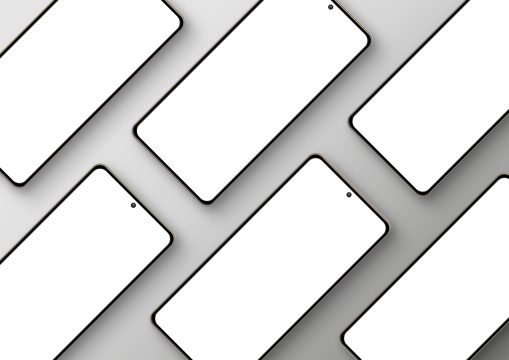
It's perfect for seniors who enjoy staying connected with their loved ones through pictures and videos or those who like to keep themselves updated with news or enjoy a bit of light entertainment now and again. Moreover, the Nokia 130's display isn't just large; it's designed with simplicity and ease of use in mind.
The intuitive interface, combined with the clear, large display, makes navigation a breeze, even for those who aren't tech-savvy. From making calls and sending messages to using apps, the uncomplicated layout of the Nokia 130 makes every interaction effortless and enjoyable. The combination of these features in the Nokia 130 truly amplifies the whole user experience, making it an ideal choice for seniors who appreciate functionality and comfort.
Flip Phones for Seniors
Flip phones are another great option for the elderly. They are compact, have physical buttons, and their design protects the screen when not in use.
The TTfone Mercury 2 TT200 is a great example of this type of phone. While many might perceive flip phones as outdated or obsolete, they are, in fact, a fantastic choice for the elderly community. With their compact size, they fit comfortably in the hand and can be conveniently stowed away in a pocket or purse. The physical buttons on these phones offer tactile feedback which is greatly appreciated by those who may struggle with the touch-sensitive screens of modern smartphones. The buttons are typically larger and clearly marked, making dialling and texting much easier for those with less dexterity or visual acuity. The clamshell design of flip phones is another noteworthy feature. It safeguards the screen when it's not being used, thereby reducing the risk of unwanted scratches or accidental dialing.
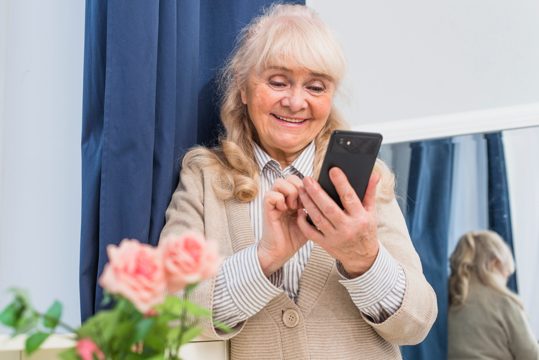
This protective design brings a sense of security and convenience that most smartphones lack. One notable model of flip phones that illustrates these advantages is the TTfone Mercury 2 TT200.
This model, specifically designed with senior users in mind, incorporates all the beneficial features of flip phones. It's not only easy to use but also comes with additional features like a built-in SOS button for emergencies and a powerful speaker for clear sound quality. The TTfone Mercury 2 TT200 is more than just a phone; it's a safety device that provides peace of mind for both the user and their loved ones. In conclusion, flip phones might seem like relics of the past, but they hold a significant place in today's market, especially for the elderly population. Their user-friendly design, combined with thoughtful features, make them a reliable and wise choice for anyone seeking simplicity and functionality in a mobile device.
Small Mobile Phones for Lightweight Portability
For seniors who prefer something lightweight and portable, smaller phones can be a good fit. The Nokia 130 is a small, lightweight phone that doesnt compromise on usability.
For our beloved seniors who have a preference for devices that are lightweight and easily portable, choosing smaller, compact phones can be an ideal fit. These phones not only fit into their pocket with ease but also do not become a burden to carry around. They offer the simplicity and convenience that seniors often appreciate. A particularly strong contender in this category is the Nokia 130. With its compact and sleek design, it is the epitome of a small, lightweight phone. Despite its petite size, the Nokia 130 doesn't compromise on usability or functionality.
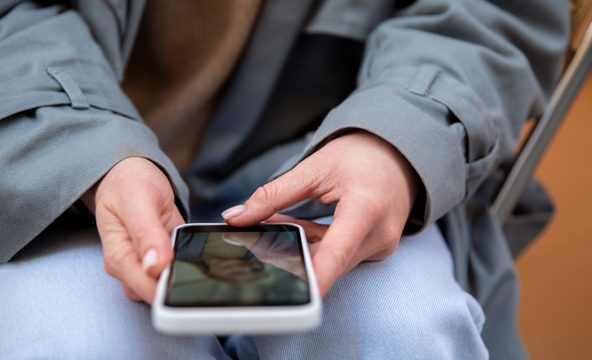
It is a device that is unintimidating, yet packed with all the necessary features. It's user-friendly interface makes it easy to navigate, even for those who are not tech-savvy.
The durable design ensures it withstands the rigours of daily use, making it an ideal choice for seniors who value reliability and longevity in a phone. Moreover, the Nokia 130 is not just about practical considerations. It is a phone that believes in providing a complete experience. It offers a range of features, from the basic calling and texting facilities to an FM radio and a music player, ensuring that seniors have access to entertainment as well. So, if you're a senior or shopping for one, consider the benefits of going small and lightweight, and give the Nokia 130 a chance to impress you.
Mobile Phones with a Long Battery Life
A phone with a long battery life is crucial for seniors. The Doro 1370, for example, boasts an impressive battery life, ensuring the phone wont die in the middle of the day.
Recognizing the importance of a phone with an enduring battery life is absolutely paramount, particularly for our senior demographic. These individuals often rely on their mobile devices as a lifeline, not just for communication but also for emergency situations, so a phone that can last the day without requiring a power boost becomes a necessary tool. The Doro 1370 is a fantastic example of such a phone, as it prides itself on its superior battery life. This impressive feature ensures that the phone won't inconveniently power down at a crucial moment during the day, offering users the peace of mind they need.
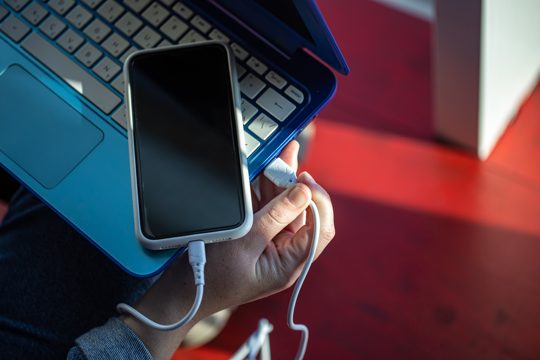
The Doro 1370 takes the worry out of staying connected, allowing seniors to focus on their daily activities without the constant need to search for a charging outlet. This is a phone that understands and caters to their needs, designed specifically to provide a robust battery life that can withstand lengthy phone calls, extended periods of usage, or even those days when charging might slip the user's mind.
So, if you're in search of a phone that combines functionality, simplicity, and longevity, the Doro 1370 is a worthy contender. Its impressive battery life is more than a mere feature - it's a testament to the phone's commitment to providing reliable, uninterrupted service to its users. With the Doro 1370, seniors can rest easy knowing their phone is as dependable as it is user-friendly, making it a vital tool in their everyday lives.
Rugged Mobile Phones for Durability
For seniors who need a more durable phone, rugged mobile phones can be a good option. They are designed to withstand falls, which can be a common occurrence for seniors.
For seniors seeking a more robust communication device that caters to their unique needs, rugged mobile phones can prove to be the perfect solution. These phones, often referred to as 'life-proof', are specifically engineered to endure the everyday risks such as accidental drops and spills. This makes them an excellent choice, particularly for seniors, who may find themselves dealing with such incidents more frequently. The robust construction of these rugged mobile phones is paired with an easy-to-use interface that makes it all the more convenient for our elderly loved ones. They are deliberately designed with larger buttons and clear, bright screens to accommodate for any potential vision impairment.
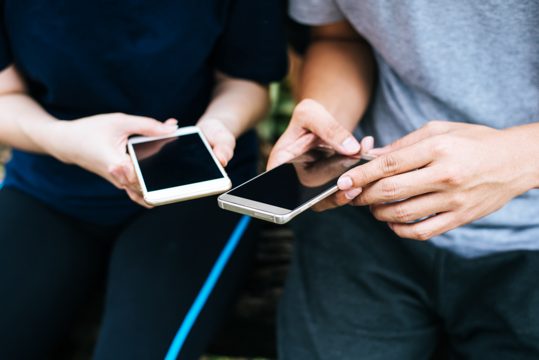
In addition, many of these phones come equipped with a range of features like emergency call buttons and hearing aid compatibility, providing an added layer of safety and reassurance. Moreover, these rugged mobile phones offer extended battery life — a feature that can be critical during emergencies.
With these phones, seniors can maintain their independence while their families can have peace of mind knowing that their loved ones are just a call away. In conclusion, rugged mobile phones are not just durable and reliable, but they also provide an extra layer of comfort and security for seniors. These phones are more than just a communication device; they are a lifeline, a tool that offers support, safety, and independence to the elderly.
Be Careful of Obsolete Mobile Phone Models
Its important to avoid obsolete models when choosing a phone for an elderly person. These phones may not support current apps or security updates, which can lead to frustrations and potential security risks.
When helping an elderly individual select a mobile phone, it's crucial to steer clear of outdated or obsolete models. These older models often lack the capability to support modern applications or receive the latest security updates. This can result in a number of complications, from minor inconveniences to significant security risks. For instance, a beloved app might run slowly or not work at all, leading to disappointment or distress. Or, even worse, the phone could fall prey to a malicious software attack, which might lead to the loss of personal information. Furthermore, using an outdated model could limit the user's ability to fully engage with the world around them digitally.

Modern smartphones offer a host of features like video calls, social media apps, and photo editing tools which can keep elderly users connected with their loved ones and up-to-date on current events. However, an older phone may not be able to handle these features, leading to a sense of isolation or disconnection.
In addition, newer phone models tend to be more user-friendly, with larger, clearer screens and intuitive interfaces that can make them easier for elderly individuals to use. They also often come with features designed specifically for older users, such as hearing aid compatibility, emergency call features, and adjustable font sizes. In conclusion, while it might be tempting to save money by opting for an older model, the potential frustrations and security risks make this a less than optimal choice. Instead, investing in a modern phone can ensure that the elderly person in your life stays connected, secure, and able to enjoy all the benefits that modern technology has to offer.
Pay-As-You-Go Mobile Phones
Pay-as-you-go phones can be a good fit for seniors who dont use their phones very often. These plans allow users to pay for only the minutes and data they use, which can save money.
Pay-as-you-go phones are an ideal solution for seniors who aren't frequent mobile users. These easy-to-use plans are specifically designed to suit the needs of those who aren't constantly glued to their phones, thereby offering an excellent balance between cost and usage. They allow the users to pay exclusively for the minutes they spend talking and the data they consume, making them a cost-effective choice. This flexible payment model can result in substantial savings for seniors.
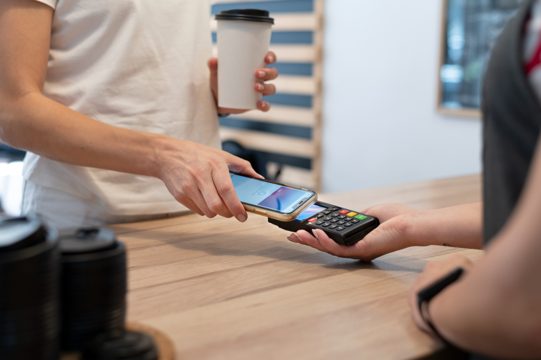
Instead of wasting money on unlimited plans that they won't fully utilize, seniors can now pay for exactly what they use. This not only makes their mobile expenses more predictable and manageable but also ensures that they're getting the best value for their money.
Furthermore, pay-as-you-go plans can also be a great way for seniors to maintain their independence without the worry of monthly bills or long-term contracts. They can top-up their plan whenever they want, giving them the freedom to control their phone usage according to their needs and preferences. So, for seniors who use their phones sparingly, pay-as-you-go plans are not just a good fit, they're the perfect solution - balancing cost, convenience, and control.
Best Value SIM Card Deals for Low Usage
For seniors who dont use data very often, choosing a SIM card deal that offers good value for low usage is important. Some providers offer deals tailored for seniors that provide just the right amount of data, minutes, and texts.
Navigating the world of technology can be a challenge, particularly for seniors who may not be as tech-savvy or who may not require the extensive data packages often marketed to younger audiences. Therefore, it becomes crucial to identify a SIM card deal that aligns with their usage patterns and delivers excellent value. After all, why pay for something you don't fully utilize?Several service providers have recognized this distinct need and sought to address it head-on. They've tailored packages specifically designed for seniors, striking the perfect balance between data, call minutes, and text messages. This thoughtful approach ensures seniors aren't overwhelmed with unnecessary features, but are adequately catered for in terms of their communication needs.
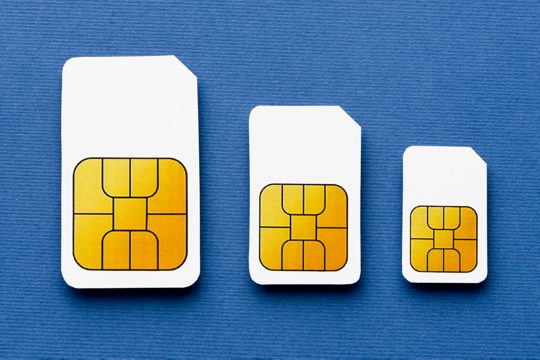
These deals are meticulously designed to provide just the right amount of data, so seniors won't find themselves paying for unused internet access. The call minutes are ample for those lengthy heart-to-heart conversations with loved ones, and the text messages cater to those who prefer this mode of communication.
This way, seniors can stay connected with their family and friends without the worry of hidden charges or unused services. By choosing such a deal, seniors can embrace the benefits of modern communication without feeling burdened by unnecessary costs or complex features. These deals make it easy for seniors to stay in touch in a way that's comfortable and accessible for them, offering them the freedom to communicate on their own terms. It's all about providing value where it matters most and ensuring that even the least tech-savvy among us can enjoy the benefits of staying connected.
Examples of Pay-As-You-Go Deals for Big Data Users
For seniors who do use a lot of data, there are also pay-as-you-go deals available. These plans offer larger data allowances, allowing seniors to browse the web, use apps, and stay connected without worrying about overage charges.
For tech-savvy seniors who find themselves using a substantial amount of data, the market offers an array of pay-as-you-go deals tailored to their needs. These flexible plans deliver larger data allowances that cater to a more demanding digital lifestyle. Seniors can freely browse the internet, engaging in online activities that range from reading e-books to watching videos, and from keeping up with the latest news to indulging in their favorite interactive games. They can download and use a variety of apps, be it for online banking, health tracking, or even learning a new hobby. Moreover, these plans ensure that seniors remain connected to their loved ones via various social media platforms, video calls, and instant messaging apps without the constant worry of exceeding their data limit.
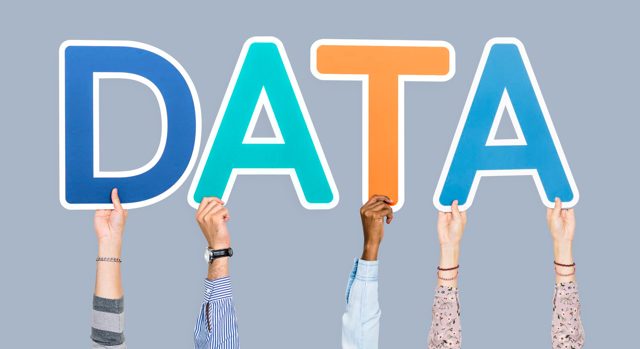
This means they can share precious moments, exchange pictures, and have lengthy video chats with their grandchildren, even if they are miles apart. Not to mention, overage charges will become a thing of the past.
With these pay-as-you-go deals, seniors have full control over their data usage. They can choose to top up their data whenever they need it, giving them the freedom to manage their digital consumption according to their needs and preferences, without any nasty surprises on their bills. Overall, these deals are a perfect blend of flexibility, control, and connectivity for seniors who are active data users.
Cheap Mobile Phones for Seniors
Affordability is a crucial factor for many seniors. There are plenty of cheap mobile phones on the market that still offer the necessary features for seniors.
These include the Nokia 130 and the Doro 1370. The cost-effectiveness of a product is a critical factor for many seniors, who often juggle their budget in order to fulfill their various needs. In the vast, ever-evolving world of technology, finding a balance between price and performance can be particularly challenging. However, there's a silver lining for those who are tech-savvy or those who want to keep up with the times without breaking the bank. There is a multitude of budget-friendly mobile phones available on the market, which despite their lower price tag, do not compromise on the essential features that seniors require. These include key features like large buttons for easy dialing, clear and bright display for effortless viewing, long-lasting battery life for extended use, and speed dialing options for emergencies.
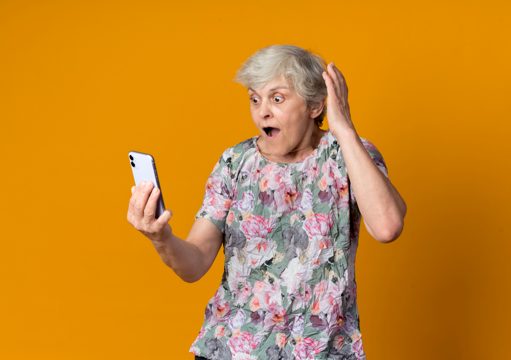
Two such examples that strike this balance beautifully are the Nokia 130 and Doro 1370. These models have been lauded for their simplicity, functionality, and affordability, making them ideal for seniors who need a reliable, user-friendly device.
The Nokia 130, known for its robust build and great battery life, and the Doro 1370, loved for its simple interface and large buttons, are excellent choices that marry cost-effectiveness with usability. In a nutshell, the market is brimming with options for seniors who want to stay connected and keep up with the digital world, without having to worry about financial constraints. Devices like the Nokia 130 and Doro 1370 are shining examples of this, proving that affordability and quality can coexist in harmony. So, for seniors looking to make a wise investment in a mobile phone, rest assured that there are plenty of options that offer value for money while still providing the necessary features to meet your needs.
Free Cell Phones for Seniors
Some programs offer free cell phones for seniors, especially those with low income. These programs often provide basic phones that are still quite useful for calling, texting, and basic internet browsing.
In this ever-evolving digital age, there are some thoughtful initiatives that go the extra mile to bridge the technological gap, particularly for seniors. These are programs that offer free cell phones, specifically to the elderly demographic who might be living on a modest income. They understand that while seniors might not need all the bells and whistles of the latest smartphone models, staying connected with the world is still crucial for them. For this reason, these programs often provide basic but highly efficient phones that serve the purpose impeccably. These devices may not have the cutting-edge features of the modern smartphone, but they are designed to be user-friendly and easy to navigate, ensuring seniors can use them without any hassle.
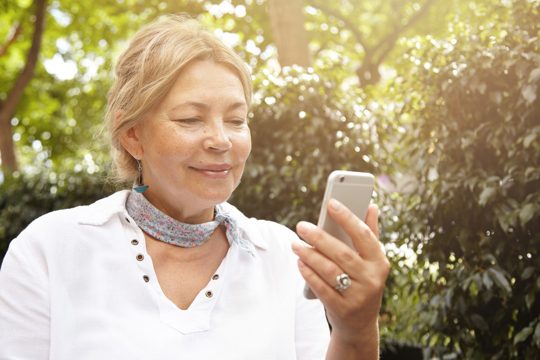
The functionality of these phones usually includes calling, texting, and basic internet browsing. This ensures that seniors can remain in touch with their loved ones, can reach out for help in emergencies, or simply browse the internet for information or entertainment, all at no extra cost.
In a world that's becoming increasingly digital, these programs strive to include seniors in the technological revolution. They aim to empower seniors by giving them the tools they need to connect with the world around them, despite their financial limitations. After all, communication is a basic necessity, and everyone, regardless of their age or income, deserves to have access to it. These programs are a perfect testament to how technology can be harnessed to promote inclusivity and make a positive impact on people's lives.
Conclusion
Choosing a phone for an elderly person depends on their individual needs and preferences. Whether they prefer a big-button phone, a flip phone, or a small and light phone, there are plenty of options available.
The key is to find a balance between usability, durability, and affordability. When it comes to selecting the perfect phone for an elderly person, it's not a one-size-fits-all scenario. Instead, it hinges on their unique needs and personal preferences. Some may prioritize simplicity, gravitating towards a big-button phone. These devices, with their larger, more visible buttons, can be a great aid for those struggling with vision impairment or dexterity issues. Alternatively, others may feel more comfortable with a flip phone, a design they may be more familiar with from the past. These often feature a simple interface and intuitive controls, making them an attractive option. On the other hand, there are those who may prefer something small, light, and portable.
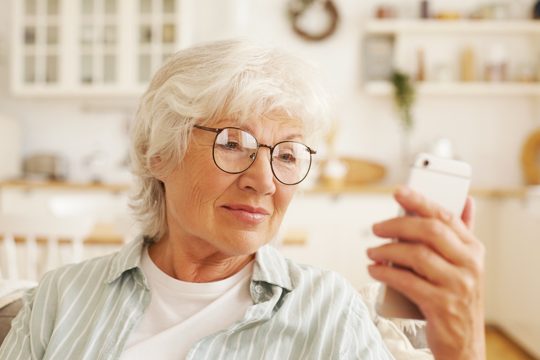
These types of phones are easy to carry around, making them convenient for seniors who are always on the go. However, it's crucial not to overlook the importance of finding that delicate balance between usability, durability, and affordability.
Usability encompasses the ease with which an elderly person can navigate the phone's interface, make calls, send messages, or even use apps. Durability is another consideration - a phone that can withstand the occasional mishap, like accidental drops, can be a wise investment. And of course, affordability comes into play as well - a good phone doesn't necessarily have to break the bank. There's an abundance of options available on the market, each with its own set of features and benefits. It's all about taking the time to evaluate each option, considering the senior's specific requirements and budget. Remember, the goal is to find a phone that enhances their life, boosting their confidence and independence, rather than complicating it. With a bit of research and patience, finding the perfect phone for an elderly person can be a rewarding and straightforward process.
About us
Welcome to SeniorCaresHub! Welcome to our comprehensive senior care destination! We pride ourselves on being a trusted resource for all things related to caring for aging loved ones. We understand the unique needs and challenges that come with senior care, and our mission is to provide you with the information, resources, and support you need to confidently navigate this journey and help you provide the best possible care for your aging loved one.

